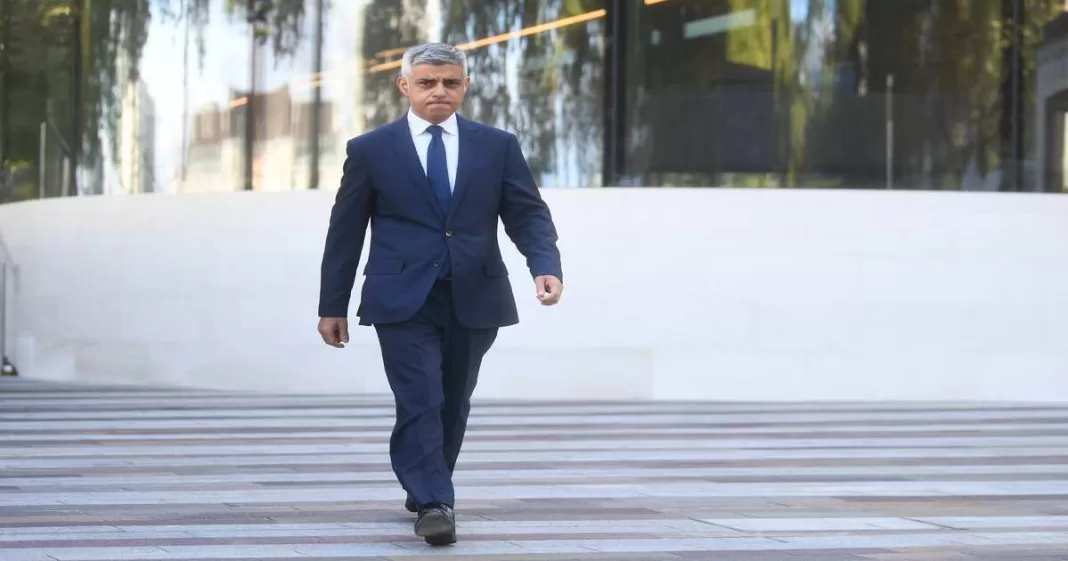A recent analysis conducted by City Hall has unveiled a distressing trend in the online abuse targeting Sadiq Khan, the Mayor of London. The study indicates a significant increase in racist and racialized abuse towards Khan, surpassing the levels observed in previous years. As hate speech continues to plague social media platforms, this surge in abuse emphasizes the pressing need for stronger measures to counter online harassment and protect public figures.
Alarming Increase in Racist Abuse
According to the study, racial abuse targeting Sadiq Khan has risen by approximately 170% compared to the same period in the previous year. If this trend continues, Khan is projected to receive over 20,000 racist or racialized “abuse mentions” on social media by the end of 2023, the highest recorded since 2020. The analysis further reveals a concerning surge in race-related abuse that specifically references the Ultra Low Emission Zone (Ulez) and air quality policies.
Read More: Sadiq Khan’s battle with mental trauma as Mayor of London
Vilification of Muslim Figures
Georgie Laming, director of campaigns at advocacy group Hope Not Hate, highlights that Sadiq Khan endures remarkably high levels of racial abuse, reflecting the vilification faced by Muslim public figures. The study underscores the importance of addressing this issue, as it not only targets Khan personally but also contributes to the broader marginalization and stigmatization of the Muslim community.
Comparison to Trump’s Era
Although the study documents an alarming increase in racist abuse towards Khan, it notes that the current levels are still significantly lower than those experienced during Donald Trump’s tenure as the U.S. president. In 2017, Khan received a record high of 88,262 racist mentions, many of which followed Trump’s misleading tweet about the London Bridge terror attack. The study reveals that these abuses often sought to associate Khan with terrorist incidents and false connections to Muslim grooming gangs, jihadis, and the Muslim Brotherhood.
Link between Racial Abuse and Ulez
The analysis suggests a growing correlation between racial abuse directed at Khan and discussions surrounding the Ultra Low Emission Zone (Ulez) and air quality policies. The study’s authors argue that dissatisfaction with Ulez is either radicalizing social media users or attracting far-right individuals into online debates about clean air policies. The study also highlights that 43% of traceable racist abuse linked to Ulez originates from London, while the remaining 57% comes from outside the city.
International Dimensions
Interestingly, the study reveals that Khan continues to receive a relatively high level of abuse from accounts in India. It suggests that with ongoing tensions in South Asia, any major news event with even a tenuous link to India or Pakistan is likely to trigger a surge in abuse directed at the mayor. This international dimension of the abuse further underscores the need for global collaboration to combat online harassment.
Social Media Platforms’ Role
Given the study’s findings, it is evident that self-regulation by social media platforms has fallen short in curbing racist abuse. Twitter, in particular, has been singled out for failing to act on abuse that violates its own terms and conditions. Experts, such as Imran Ahmed, CEO of the Center for Countering Digital Hate, emphasize the urgency of the Online Safety Bill, which seeks to hold social media platforms accountable for hate speech, threats, and coordinated harassment campaigns.
Read More: Sadiq Khan wants London to host Olympics again
The surge in racist and racialized online abuse targeting Sadiq Khan is a disturbing trend that demands immediate attention. As a public figure, Khan is subjected to a relentless barrage of abuse, highlighting the need for social media platforms to take stronger action in combating hate speech. To ensure the safety and well-being of individuals in the public eye, it is crucial for online platforms to enforce stricter regulations and collaborate internationally to counter the growing menace of online abuse.














